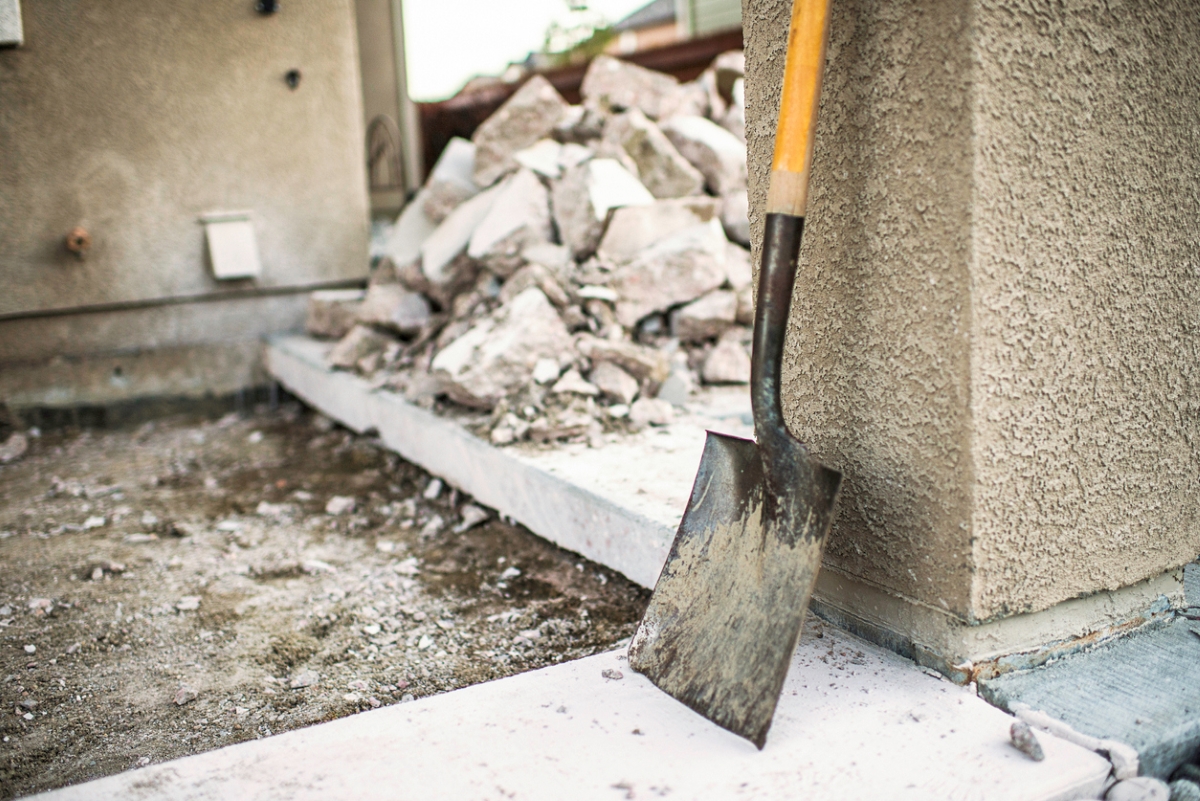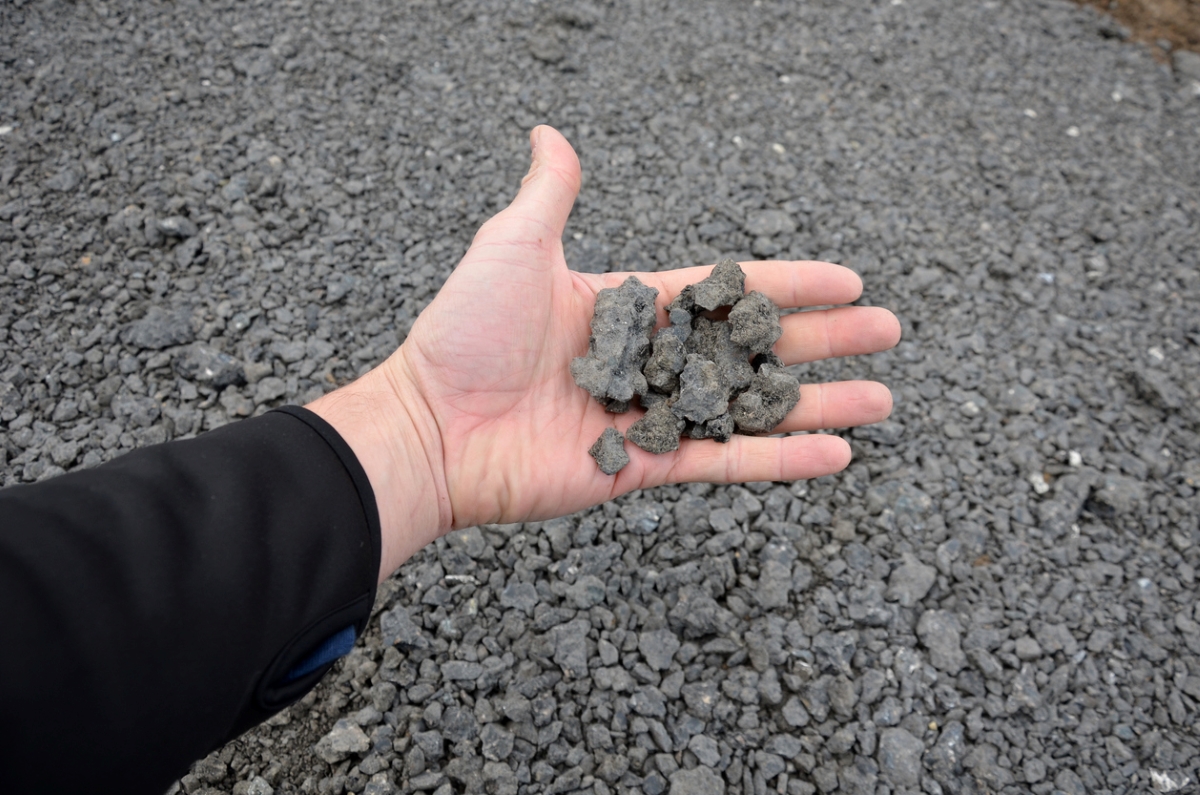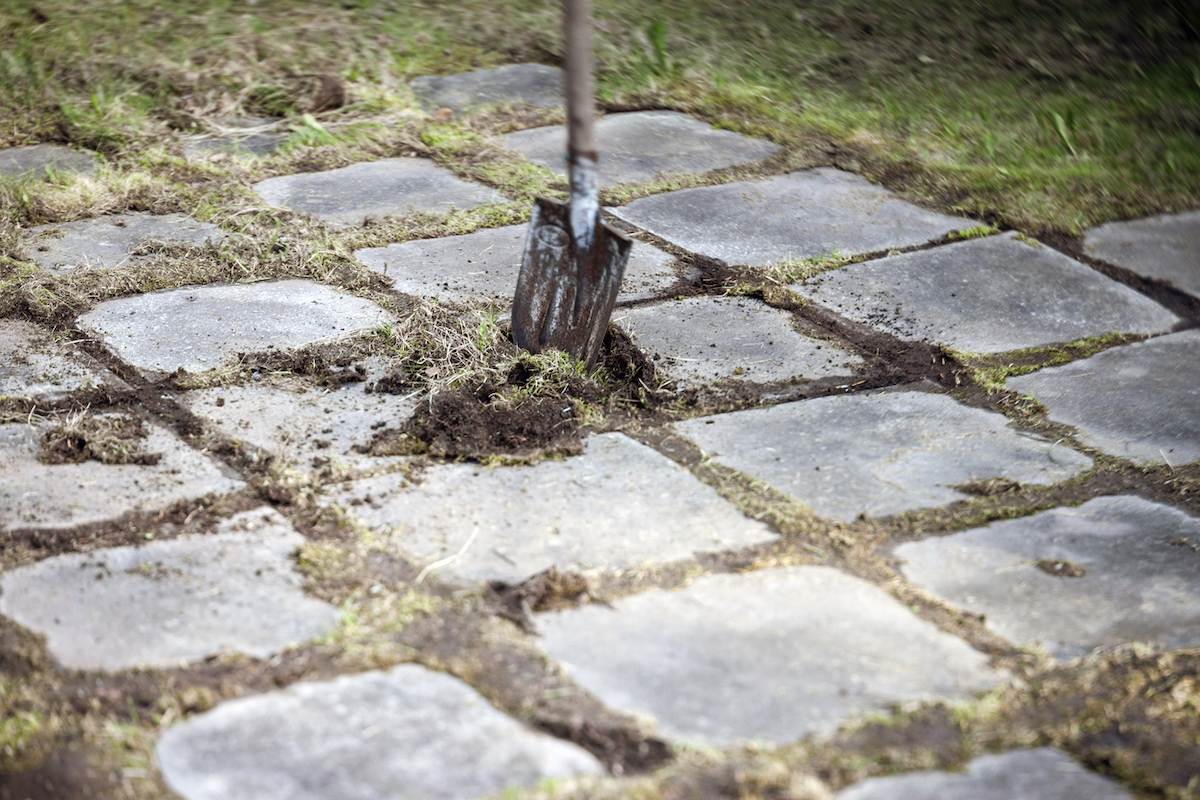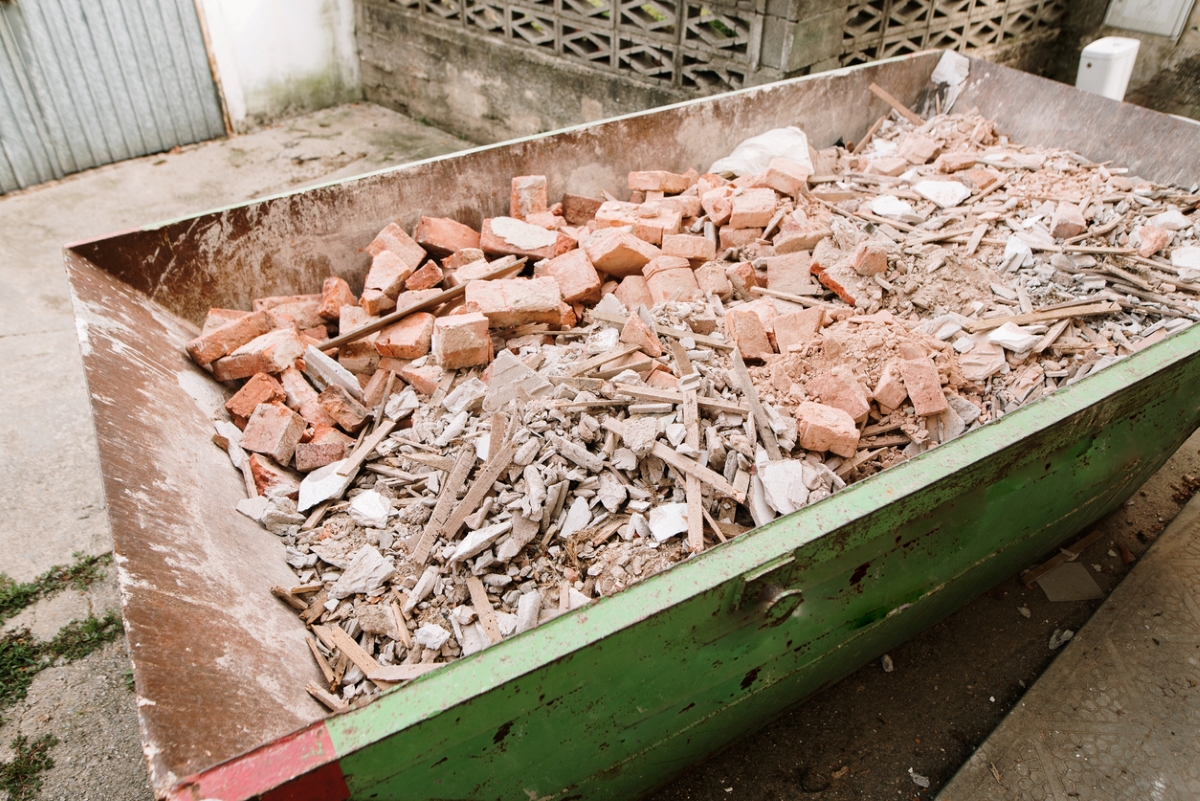

We may earn revenue from the products available on this page and participate in affiliate programs. Learn More ›
Q: I just bought a house and one of my first projects is removing an old, cracked concrete patio in order to replace it with a new deck. How can I dispose of the old concrete?
A: Concrete is a little more difficult to dispose of than wood or other construction debris, both due to its weight and the fact that it takes a long time to break down. For this reason, most folks just load a few pieces up at a time and take them to the dump.
According to the Environmental Protection Agency (EPA), concrete waste disposal makes up 67.5 percent of U.S. construction and demolition debris. That much concrete in landfills is bad news for the environment. And while a transfer station or dump is sometimes the best option for concrete disposal, there are other more eco-friendly ways to get rid of waste. Below are several options you can choose from when determining how to dispose of concrete.
RELATED: How Much Does Driveway Repair Cost?
Recycling concrete at a construction and demolition recycling center is one of the best disposal options.
Many folks don’t know that concrete is actually recyclable, and there are facilities that are committed to making sure this happens. Delivering demoed concrete to these facilities is one of the few ways to ensure that the concrete is being recycled properly.
Construction and demolition recycling centers, or standard recycling centers that offer specific construction and demolition recycling services, will accept concrete and grind it back into an aggregate mixture. The mixture these facilities create can be used for base layers in road and driveway construction and other uses. Manufacturers can also blend this aggregate mixture with new material to create new concrete.
Dumping concrete with this option will often require a truck or trailer, and it’s important to consider the truck’s payload and the wear and tear on the vehicle.
Local concrete suppliers and landscaping companies may accept and repurpose old concrete.

Local concrete suppliers can be a great option for concrete disposal. Like recycling centers, these concrete dump sites will crush and grind the material back into a reusable mixture and then sell it to pros and homeowners so it can be put to use as a base layer or mixed into new concrete. This will usually require delivering the concrete with a truck and trailer, as the concrete supplier is unlikely to come pick it up.
Landscaping companies might also be a good source for recycling concrete. They sometimes have their own processing equipment that can break down the concrete chunks into usable base materials, or they may even use blocks and fill for creating retaining walls and leveling yards. Best yet, there’s a good chance the landscaping company may pick up the concrete, but this isn’t always the case.
RELATED: 7 Things to Know About Concrete Forms
Someone in your community might have a use for donated concrete.
This one might seem like a long shot, but there may be opportunities to donate, trade, or potentially sell concrete to folks in the local community. This is most likely when the concrete is in block form, whether it be concrete bricks, blocks, or pavers. It’s also a great option to dispose of concrete bags purchased in excess. Donating these extra concrete items to churches, trading them for other items, or even outright selling them may be possible for folks who list them on local classified sites or Facebook Marketplace.
Before donating or selling, there are some things to consider. Is selling concrete worth it if it requires loading the concrete into a personal vehicle? The labor is intensive and the wear and tear on the vehicle can be immense. Is the item being offered in the trade worth the effort? Or is it better to simply donate the concrete and allow the recipient to load it up and take it?

You can rent a roll-off dumpster and have the concrete hauled away.
Another option, and it can be the easiest, is to rent a dumpster for concrete and have the dumpster company haul it away. They’ll drop a dumpster off on the site, then the homeowner loads the concrete into the dumpster, and finally the company comes back to haul it away. It doesn’t get much simpler.
A dumpster cuts back on some of the labor and all of the personal vehicle requirements, so it may be worth a shot. However, there are some points to understand before choosing the dumpster roll-off route:
- Roll-off companies may require customers to disclose that they’re disposing of concrete, as they use a specific heavy-duty concrete dumpster for these purposes.
- There isn’t a surefire way to know that the concrete is being recycled. It might just end up in a landfill.
- Most companies (specifically those that recycle concrete) have disposal rules that won’t allow customers to mix other debris with concrete. Other materials would have to go into a different dumpster.
- A dumpster rental for concrete might be expensive compared to many other options.

A junk removal service can pick up larger amounts of concrete than you may be able to handle yourself.
If the budget allows, hiring a service with the equipment and dumpster to handle the concrete removal is the least stressful. This is especially true when there are large amounts of concrete. These junk removal services will load the concrete into their own truck or dumpster and haul it away, leaving the homeowner with just one task: paying for it.
Understand that a concrete removal service is the most expensive option. And, like a roll-off dumpster, no one but the junk service knows where that concrete is going to end up. Is it going to get recycled or will it end up in a landfill? It’s worth asking the question before scheduling a pickup.
As a last resort, concrete can be manually disposed of at a local landfill or transfer station.
The final option is to handle the concrete disposal yourself by taking it to a local landfill or transfer station. While this might seem like giving up on recycling altogether, there are some circumstances why this method may be the most environmentally friendly.
Consider a rural address far removed from any concrete suppliers or recyclers. If the homeowner were to load up their truck and drive the concrete to these facilities, emissions created might be a bigger issue than the concrete sitting in a landfill. The same could be said about having someone pick it up for removal. If they have to travel a great distance in a heavy-duty vehicle, the emissions output is significant.
This option is best for folks who live far away from any other option, but close enough to a local landfill to make disposing of concrete easier and more eco-friendly.
RELATED: How to Dispose of Tires Properly
